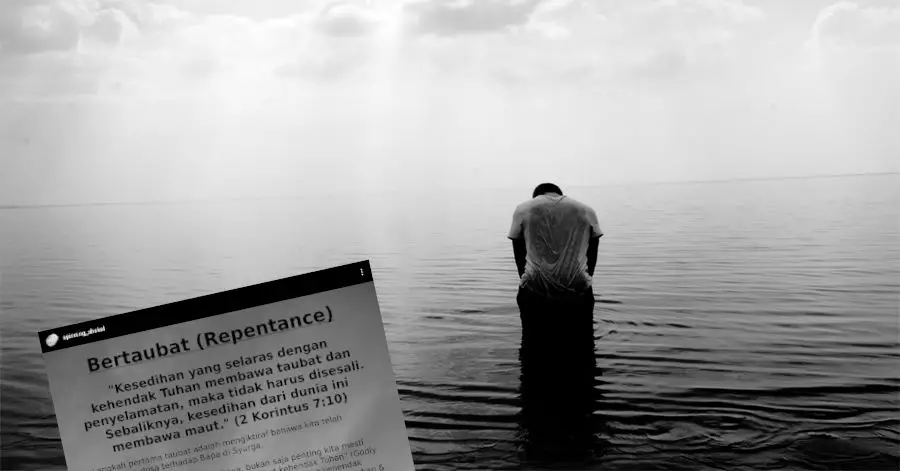For even if I made you sorry with my letter, I do not regret it; though I did regret it. For I perceive that the same epistle made you sorry, though only for a while. Now I rejoice, not that you were made sorry, but that your sorrow led to repentance. For you were made sorry in a godly manner, that you might suffer loss from us in nothing. For godly sorrow produces repentance leading to salvation, not to be regretted; but the sorrow of the world produces death.
2 Corinthians 7:8-10
Repentance is the process of reviewing our actions and feeling contrition or regret for past wrongs, which is accompanied by commitment to actual actions that show and prove a change for the better.
Two years ago, I have shared on Instagram, this seven part series on repentance. Back then, it was written in Malay language, and now I translated it in English to permanently have this series recorded on this blog, that it may be read, reread and searched by all.
The first step towards repentance is to acknowledge and recognize that we have sinned and committed transgressions.
This recognition as a result of denying His commandments, would lead to the state of being sorry, which according to the Bible, is explained as a form of essential Godly sorrow. To be sorry for what we have done, the sins we have committed, transgressions we have caused to God and the exceeding of due bounds and limits in our actions towards others, causing them pain, hurt or suffering.
Godly sorrow in itself is different from worldly sorrow. Godly sorrow leads to recognition of our sins and what it does to us. It points us to see clearly the need to change our habits, our lifestyle and our resolve. Whereas worldly sorrow is nothing more than mere experience of sadness, unhappiness, misery or agony towards the repercussions of sin and the consequences it brings.
Godly sorrow is driven by the Holy Spirit. Whereas worldly sorrow is influenced by plain, regretful afterthought. Godly sorrow is the bit in us that the Holy Spirit drives to initiate the process of repentance. Without godly sorrow, the seed of repentance shall never be laid.
WHAT MUST WE DO
Pray and ask the Holy Spirit to show us Wisdom (James 1:5), and what is meant by Godly sorrow and repentance.
< > Part Two






Good evening brother. I don't know anyone you mentioned above but I can sensed the hurt that you are going…
Please confine your comments to the subject of this post, i.e. a preacher caught lying in daylight. It is none…
"And also, from this line of reasoning given by Christina Ang, what about the score of believers who died from…
Benny Hinn has been spinning fraud messages ever since he started his ministries. He's been using Christian principles to gain…
Thanks for picking up on my comment made in an earlier post. Now, we know why genuine Christians will be…